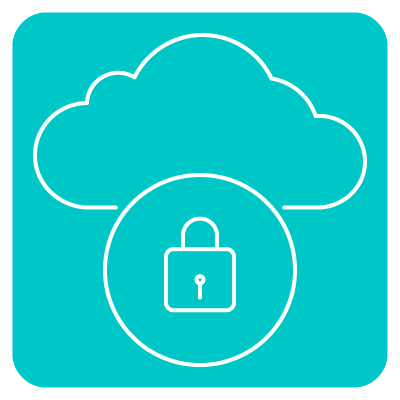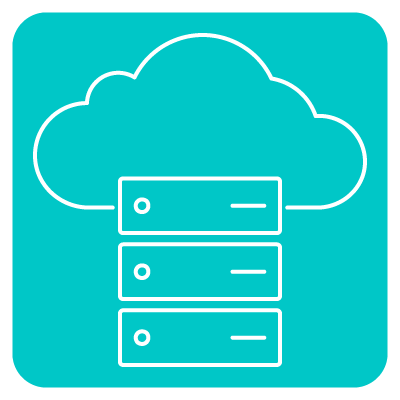The enterprise cloud market is experiencing unprecedented growth, with global spending reaching $79 billion in Q2 2024, an expansion of more than 20 percent year-over-year. This surge is driven by organizations seeking scalable, flexible, and cost-effective IT solutions as they navigate digital transformation. To stay competitive and innovative in today's fast-paced business landscape, you need the enterprise cloud solution that's right for your business.
What is Enterprise Cloud?
Enterprise cloud refers to a scalable, secure, and flexible cloud computing environment built specifically for large organizations with complex IT requirements. Unlike consumer-grade cloud solutions, enterprise cloud platforms are designed to handle vast amounts of data, integrate with diverse systems, support mission-critical applications, and meet strict compliance and security standards. These environments often combine the best of both public and private cloud infrastructure to deliver high performance, control, and agility at scale.
Enterprise cloud solutions are typically managed through a centralized interface that allows for seamless orchestration across multiple locations, cloud providers, and workloads. They are also built with enterprise-grade features such as robust disaster recovery, identity and access management, advanced analytics, and automation capabilities.
Ideally, an enterprise cloud service should offer:
Scalability: The ability to easily adjust resources up or down based on business needs
Flexibility: The option to choose from various deployment models and service types
Cost-effectiveness: Pay-as-you-go subscription models to reduce upfront investments
Security: Advanced security measures to protect sensitive data
Compliance: Policies designed to meet industry-specific regulatory requirements
An enterprise cloud solution that checks these boxes can help you optimize your IT resources as your business quickly adapts to changing market demands.
Enterprise Cloud Use Cases
Enterprise cloud solutions have transformed operations across various sectors:
Healthcare organizations use enterprise cloud platforms to secure the storage and sharing of patient records, enhance collaboration among healthcare providers, and improve data analytics for personalized treatment plans.
For retail firms, enterprise cloud is the foundation for scalable e-commerce platforms that can handle peak shopping periods. Enterprise cloud platforms also enable real-time inventory management across multiple locations and personalized customer experiences through data analytics.
Manufacturers need enterprise cloud platforms that can integrate IoT devices for improved production monitoring, optimize supply chains through real-time data analysis, and enhance product design through cloud-based CAD tools.
What Are the Different Types of Enterprise Clouds?
Enterprise clouds come in various types, each suited to different business needs and priorities:

Public clouds are operated by third-party providers and offer services over the internet. Customers share resources with other tenants, which makes these solutions highly scalable and cost-effective. Public clouds are ideal for businesses with fluctuating demand, or for those looking to minimize upfront infrastructure investments. Leading public cloud providers include Amazon Web Services (AWS), Microsoft Azure, and Google Cloud Platform (GCP).

Private clouds are dedicated to a single organization and can be hosted either on-premises or by a third-party provider. They offer greater control and customization compared to public clouds and are more secure. Private clouds are suitable for businesses with strict regulatory requirements or sensitive data. Examples include IBM Cloud Private and VMware vCloud Suite.

Multi-cloud strategies involve using multiple cloud providers to avoid vendor lock-in and optimize performance. By distributing workloads across different clouds from different vendors, businesses can leverage the unique strengths of each provider while ensuring high availability and resilience. However, multi-cloud environments can be complex to manage and require robust governance and integration strategies.

Hybrid clouds combine public and private cloud environments, allowing businesses to leverage the benefits of both. This model enables organizations to run critical workloads on private clouds while using public clouds for scalability and cost efficiency. Hybrid clouds offer flexibility, control, and seamless integration between on-prem and cloud infrastructure. Examples include AWS Outposts and Azure Stack.
What Are the Benefits of Enterprise Cloud?
There are many benefits that would lead an organization to adopt an enterprise cloud solution:
Enhanced collaboration and productivity: Enterprise cloud platforms provide access to data and applications from anywhere at any time. That enables real-time collaboration across geographically dispersed teams.
Cost reduction: Enterprise cloud providers generally offer metered pricing, so you only pay for the compute and storage services you actually use. This aligns costs with actual usage and eliminates the need for significant upfront hardware investments.
Scalability: With an enterprise cloud platform, you only pay for what you need today—but you can also quickly scale resources up (or back down) when you need to. Your enterprise cloud infrastructure will support your business as it grows without requiring significant changes.
Improved data security and compliance: Many enterprise cloud platforms offer compliance certifications for various industries, and provide advanced and regularly updated security features.
Faster innovation: With an infrastructure based on an enterprise cloud platform, you can rapidly deploy new applications and services. Many enterprise cloud providers also provide access to cutting-edge technologies like AI and machine learning.
What Are the Challenges Associated With Enterprise Cloud?
While enterprise cloud offers numerous benefits, it's important to be aware of potential challenges you might encounter as you deploy, and to take the necessary steps for a successful transition:
Migration complexity: Moving existing applications and data to the cloud can be complex, especially for a large enterprise. You will need to develop a comprehensive migration strategy and should consider using a hybrid cloud platform as a transitional step.
Data sovereignty: Any multi-national enterprise that stores data in the cloud needs to consider the physical location where that data is stored, and what that location might mean for any applicable data privacy laws. Choose providers with data centers in compliant locations and use a private cloud platform for sensitive data.
Security concerns: Storing data off-premises can raise security questions. Choose providers with strong security credentials and implement additional security measures like encryption and multi-factor authentication.
Cost: While moving to the cloud can ultimately reduce costs, you may encounter unexpected expenses if you don't properly manage your cloud infrastructure. Be sure to implement robust cost monitoring and optimization strategies.
How To Choose the Best Enterprise Cloud
Ready to move to an enterprise cloud platform? Begin the process of selecting an enterprise-class cloud vendor that aligns with your organization's needs by assessing your specific requirements and use cases to identify the critical features and capabilities you need from a cloud provider. Selecting the right solution involves several key steps:
1. Evaluate current and future IT needs: Assess your current IT architecture and consider future growth and technology requirements.
2. Compare providers: Begin the process of evaluating potential enterprise cloud providers by looking at their scalability, security features, and compliance certifications. Consider factors like global presence, support quality, and integration capabilities.
3. Assess performance metrics: Once you've narrowed your search, dig deeper into the performance data for potential vendors. Look at uptime guarantees, response times, and support quality. And don't take the vendors' self-assessment at face value: consider third-party benchmarks and customer reviews.
4. Evaluate Fit with Existing Architecture: Your cloud platform won't be operating in a vacuum. Consider the ecosystem of services and third-party integrations offered by the vendor to leverage a wide range of tools and technologies. And you should assess ease of migration and hybrid/multi-cloud capabilities to ensure seamless integration with your existing infrastructure and future scalability.
5. Consider data protection: Evaluate the data backup and recovery options for the various platforms you're considering. Look for solutions that offer robust data protection, such as Rubrik's cloud data management platform, which provides enterprise-grade backup and recovery across multiple cloud environments.
6. Examine pricing models: Finally, you need to fully understand the pricing structure and potential hidden costs for any platform you choose. Consider long-term cost projections and ROI to calculate total cost of ownership to ensure the vendor you choose aligns with your budget.
Before making a commitment, evaluate the vendor's track record and customer references in your industry to gauge their experience and success in similar deployments. The best choice will depend on your unique business requirements, IT strategy, and long-term goals. Thorough evaluation and due diligence are crucial to making an informed decision.
How To Stay Ahead With Enterprise Cloud
Deploying an enterprise cloud solution is just the beginning of your journey. To maximize the benefits of your investment, you'll want to:
Stay informed. Keep up with industry trends and emerging technologies. Relevant staff should attend cloud computing conferences and webinars.
Optimize continuously. You should regularly review and optimize your cloud usage and implement cloud management tools to monitor performance and costs.
Invest in training: Make sure that your IT team is skilled in using and administering cloud technologies. To that end, consider helping key personnel pursue cloud certifications.
Prioritize security: Implement a robust cloud security strategy that includes regular audits and updates to security measures.
Ready to move forward with your enterprise cloud deployment? Learn how Rubrik can help protect your enterprise cloud investment with a full suite of cloud security services for your business.